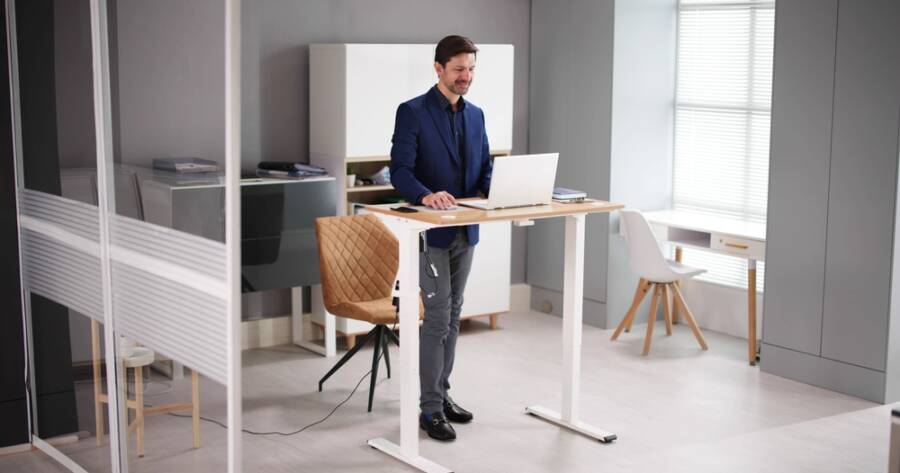For years, office work has been tied to sitting at a desk for long hours, often leaving people stiff, tired, and unfocused. Recently, standing desks have emerged as a popular alternative, offering a healthier way to structure the workday. While many people see them as a solution for improving posture, the benefits extend much further. From boosting energy to enhancing focus, standing desks can transform both your health and productivity in ways that may surprise you.
Standing Desks and Posture Improvement
The most obvious benefit of standing desks is posture. Sitting for hours can encourage slouching, which puts stress on your back, shoulders, and neck. A standing desk helps you stay upright, keeping your spine aligned and your core engaged.
Many users report reduced stiffness and fewer aches by simply alternating between sitting and standing. While posture may be the starting point, the shift in body position also creates a ripple effect that impacts your overall well-being.
Energy Levels and Focus
Standing while working has been shown to increase energy and alertness. When you stand, your body stays slightly more active compared to sitting, which helps blood circulate better and prevents that mid-afternoon slump many workers experience.
Research finds that standing desks are linked with improved energy and reduced fatigue among employees. This extra boost of vitality doesn’t just make you feel better—it can also sharpen your focus, helping you complete tasks more efficiently.
Supporting Movement Throughout the Day
One of the hidden strengths of standing desks is how they encourage movement. While standing isn’t a workout, it makes it easier to stretch, shift your weight, or walk around briefly between tasks.
This small increase in daily activity can help counteract the negative effects of long-term sitting, such as muscle stiffness and reduced circulation. Many people also find that standing encourages them to take short breaks, which refreshes both the body and the mind.
Productivity Benefits in the Workplace
Beyond physical health, standing desks can play a role in workplace performance. Employees often report higher levels of focus and efficiency after switching to adjustable desks.
Research finds that standing desks can improve engagement and reduce feelings of fatigue among office workers over time. By combining better posture, increased energy, and fewer distractions from discomfort, these desks create a working environment that supports steady productivity.
Mental Health and Mood Boosts
It’s not just the body that benefits—your mood can too. Standing desks can help reduce feelings of stress and restlessness that come with long periods of sitting.
Movement and upright posture are linked to improved mental well-being, and even small changes in physical position can influence your outlook. People who use standing desks often describe feeling more positive, motivated, and in control of their workday, which adds to the appeal of making the switch.
Tips for Making the Transition
Switching to a standing desk takes some adjustment. It’s best to start gradually by alternating between sitting and standing instead of standing all day. Make sure your desk and screen are set at the right height to avoid strain on your wrists or neck.
Supportive shoes or a cushioned mat can also make standing more comfortable. Over time, your body adapts, and standing for longer stretches becomes a natural part of your workflow.
A Simple Change with Big Payoffs
Standing desks are often praised for improving posture, but their real value lies in the wide range of benefits they bring to everyday life. From boosting energy and focus to encouraging movement and even improving mood, they go far beyond correcting slouching.
Making the shift to a standing desk doesn’t just change how you sit or stand—it can transform the way you feel and work throughout the day. In a world where productivity and well-being are closely connected, this simple change can deliver lasting rewards.

